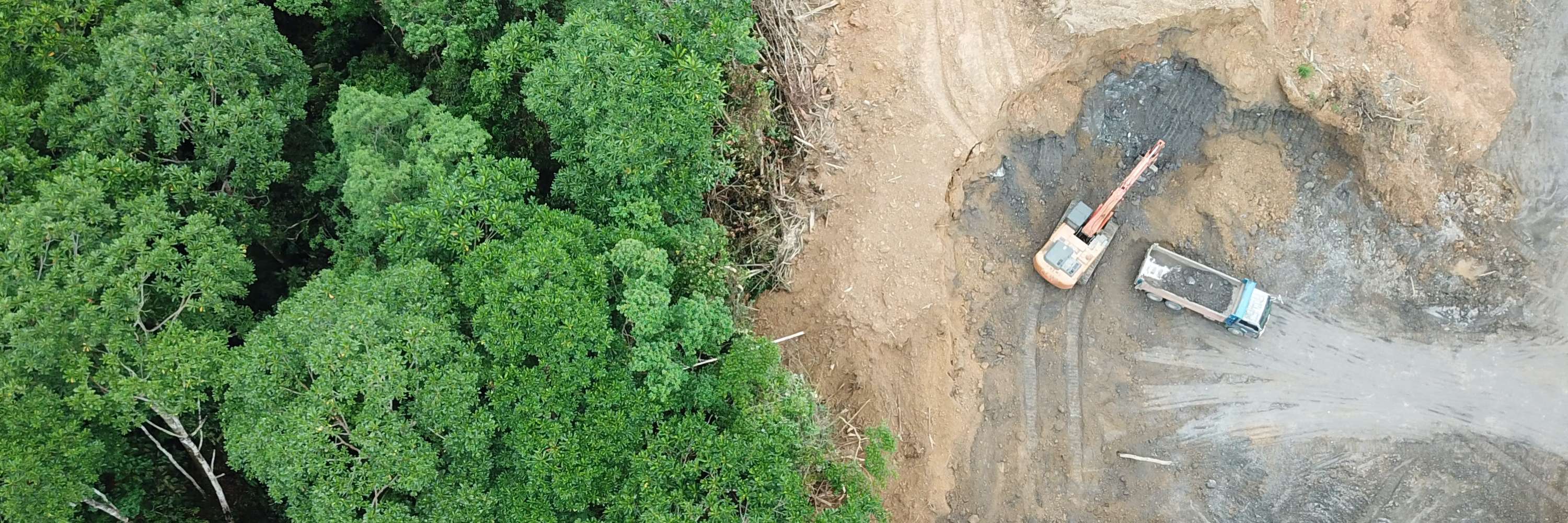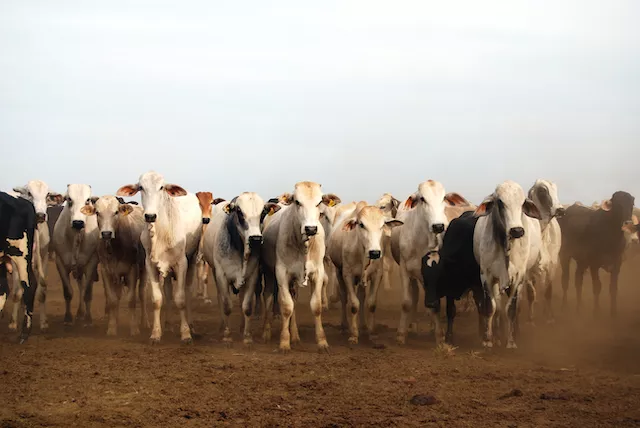
How keeping animal products off your plate helps the Indian farmer
With about 15% of GDP coming from agriculture, more than half of the Indian population depends on farming directly or indirectly. However, the fate of farmers remains invariably tied to one huge variable – Climate Change. The effect of the meat, egg and dairy industry on climate change is as massive as it is on the animals themselves.
Let us take a closer look at how our choices affect our providers.
- Deforestation and overgrazing
A growing demand for animal products results in clearing of forests to create pastures for rearing livestock. As early as 2006, about 30% of the earth was pasture land for livestock, and 33% of fertile land was being used for producing livestock feed. Of this, 20% of land was considered to be wasted because herds tend to overgraze, resulting in large-scale erosion, desertification, and degradation of land. This leaves arable land occupied for animal feed and the remaining land unusable for farming. Over the years, these numbers have only increased. Furthermore, deforestation on a massive scale causes temperature changes and affects rainfall, which is dreaded by farmers.
Cutting down on animal products can free up fertile soils for farming and ensure that our forests keep the climate in check.
- Water wastage and pollution
While the production of 1 kg of corn requires 500 liters of water, that of 1 kg of beef requires 13,000 liters of water. Thus, the animal industry wastes an excessive proportion of the water supply, which could serve to irrigate drought-ridden areas. Animal husbandry further causes water pollution due to untreated animal waste discharge, pesticides, antibiotics, and hormones seeping into the freshwater supply.
Phasing out animal farming and switching to plant-based foods can help save water for irrigation and keep freshwater supply clean.
3. Greenhouse gas emissions
Cattle rearing releases a considerable amount of methane through belching and flatulence. A documented greenhouse gas, methane is 72 times more dangerous than carbon dioxide when it comes to global warming over a period of two decades. Shockingly, animal farming is responsible for about 18% of the global methane emissions. Methane produced by Indian cattle alone can exponentially increase global warming, with methane emissions increasing from 13.85 million tons/yr in 2007 to 16.62 million tons/yr in 2032.

A reduction in animal husbandry activities will go a long way in preventing warming both at the global and local stage.
4. Climate change
According to the Food and Agriculture Organization, the global demand for meat and dairy is estimated to grow by 88% from 2010 to 2050, which will require pasturelands to expand by an area larger than that of India. This could result in a 1.5°C -2°C rise in temperature due to deforestation and methane emissions. Even a slight change in temperature can catastrophically affect the climate making indian farmers helpless and rendering millions starving due to a food shortage.
Therefore, India needs to reconsider its meat, egg and dairy consumption. These factors that affect the climate equally affect all our lives. As a small ripple can create a huge wave, you too can do your bit by gradually shifting toward plant-based food. So let us take this small step to make a big change and save ourselves and our providers.
